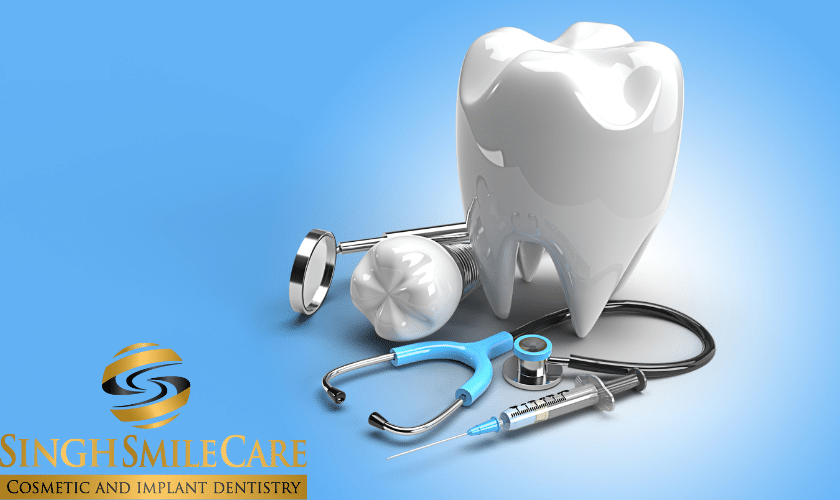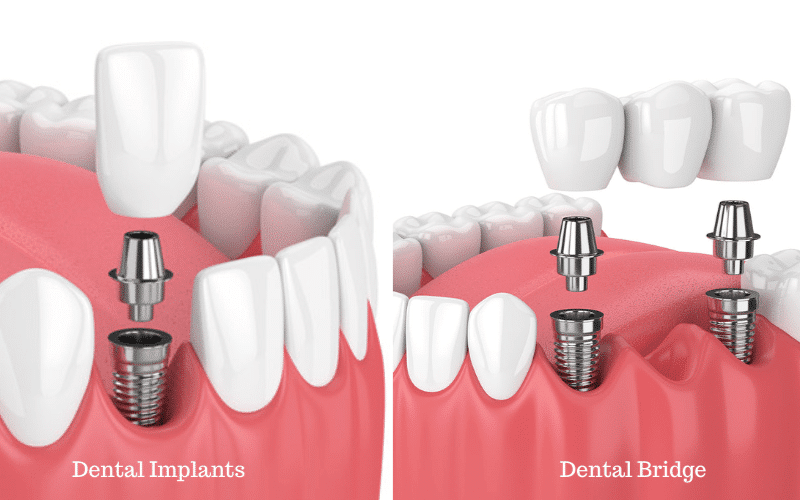
The World Of Dental Implants: Different Types And Their Benefits
Welcome to the world of dental implants, where missing teeth are no longer a source of embarrassment or discomfort. Dental implant technology has come a long way in recent years and is now considered one of the most effective solutions for restoring your smile and improving your oral health. Whether you’re missing one tooth or many, there are different types of dental implants available that can help you achieve optimal results with minimal downtime. In this blog post, we’ll explore the various types of dental implants and their benefits, as well as provide tips on how to care for them properly. So sit back, relax, and let’s dive into the fascinating world of dental implants!
Dental Implants: An Overview
Dental implants are an innovative and long-lasting solution for missing teeth. They have become increasingly popular over the years, as they offer a permanent replacement for natural teeth that look, feel, and function like real ones.
Dental implants consist of three parts: the implant itself (a titanium screw that is surgically placed into the jawbone), an abutment (a connector piece that joins the implant to the crown), and a custom-made crown (the visible part of the implant). Together, these three components create a strong foundation for artificial teeth.
Unlike dentures or bridges, dental implants do not rely on adjacent teeth for support. This means that there is no risk of damaging healthy teeth during installation or use. Additionally, dental implants can last a lifetime with proper care.
While dental implants involve surgery and require some healing time before they can be used fully, they provide many benefits beyond simply replacing missing teeth. They help maintain bone density in the jaw by stimulating growth and preventing further deterioration after tooth loss; this helps preserve facial structure over time. Dental implants also allow patients to eat comfortably without worrying about slippage or discomfort associated with other types of tooth replacements.
Dental implants are an excellent option for those seeking natural-looking and functional replacement teeth that will stand up to daily wear and tear over time.
Different Types Of Dental Implants
There are several types of dental implants available today, each with its own unique set of benefits and drawbacks. One common type is the endosteal implant, which is placed directly into the jawbone and can support one or multiple teeth. Endosteal implants are typically made from titanium and offer a high success rate.
Another type of dental implant is the subperiosteal implant, which sits on top of the jawbone but underneath the gum tissue. This option may be used for patients who do not have enough healthy bone to support an endosteal implant.
Zygomatic implants are another alternative for individuals with severe bone loss in their upper jaw. This specialized implants anchor into the cheekbone rather than the maxilla.
Mini dental implants are smaller versions of traditional implants that can be used in cases where there isn’t enough space or bone density to support a larger fixture.
When considering dental implant options, it’s important to consult with your dentist to determine which option best suits your individual needs and oral health goals.
The Benefits Of Dental Implants
Dental implants offer a wide range of benefits to patients who are missing teeth. Firstly, implants look and feel like natural teeth, which can boost your confidence and self-esteem. They are made from high-quality materials that are durable and long-lasting, meaning you won’t have to worry about replacing them any time soon.
Furthermore, dental implants provide excellent functionality when it comes to chewing and speaking. Unlike dentures or bridges, which can slip out of place or cause discomfort over time, dental implants allow you to eat your favorite foods with ease and speak clearly without worrying about slippage.
Moreover, dental implants help preserve the structure of your jawbone by acting as a replacement for the root of the tooth. This helps prevent bone loss in the jaw area that often occurs with missing teeth.
Another advantage is that dental implant surgery has a high success rate when performed by an experienced dentist. Additionally, they require little maintenance besides regular brushing and flossing just like natural teeth do.
Finally yet importantly, investing in dental implants may save money in the long run since they last up to 25 years if taken care of properly unlike other options such as dentures or bridges requiring replacements every 5-10 years on average.
There are numerous benefits associated with choosing dental implants as a solution for missing teeth – from improved appearance and function to better oral health outcomes overall.
How To Care For Dental Implants
Once you’ve received dental implants, it’s essential to take proper care of them to ensure they last. While implant maintenance may differ from person to person based on individual needs and medical history, some general rules can help keep your dental implants healthy.
Firstly, brush twice daily with a soft-bristled toothbrush and non-abrasive toothpaste. It’s also necessary to floss at least once daily using unwaxed tape or floss that slips easily into tight spaces between the teeth.
It is best not to smoke as smoking can cause complications like gum disease and bone loss which affect the longevity of your dental implant. Similarly, avoid consuming hard foods that could damage natural teeth and implants.
Regular check-ups with your dentist are essential for monitoring any changes or issues in your oral health while ensuring professional cleaning of your implants every 3-6 months.
Be proactive about attending regular appointments with an experienced dentist who specializes in providing quality aftercare services for all types of dental procedures involving implants. Proper home care combined with excellent follow-up care by a skilled practitioner is key to maintaining long-lasting results.
Bottom Line
Dental implants have revolutionized the world of dentistry by offering a permanent and effective solution to missing teeth. With different types of dental implants available, patients can choose one that best suits their needs and preferences.
The benefits of dental implants are numerous, including improved oral health, better speech and chewing ability, and increased self-confidence and comfort. However, proper care is crucial to ensure their longevity.
Following simple hygiene practices such as brushing twice daily with a soft-bristled brush and flossing gently around the implant area regularly can help prevent any complications.
It is important for individuals seeking dental implant treatment to consult an experienced dentist who will provide them with comprehensive information on each type of implant available. With proper care and regular check-ups from your dentist or periodontist after implant placement surgery, you can enjoy all the benefits that come with having healthy teeth once again.



